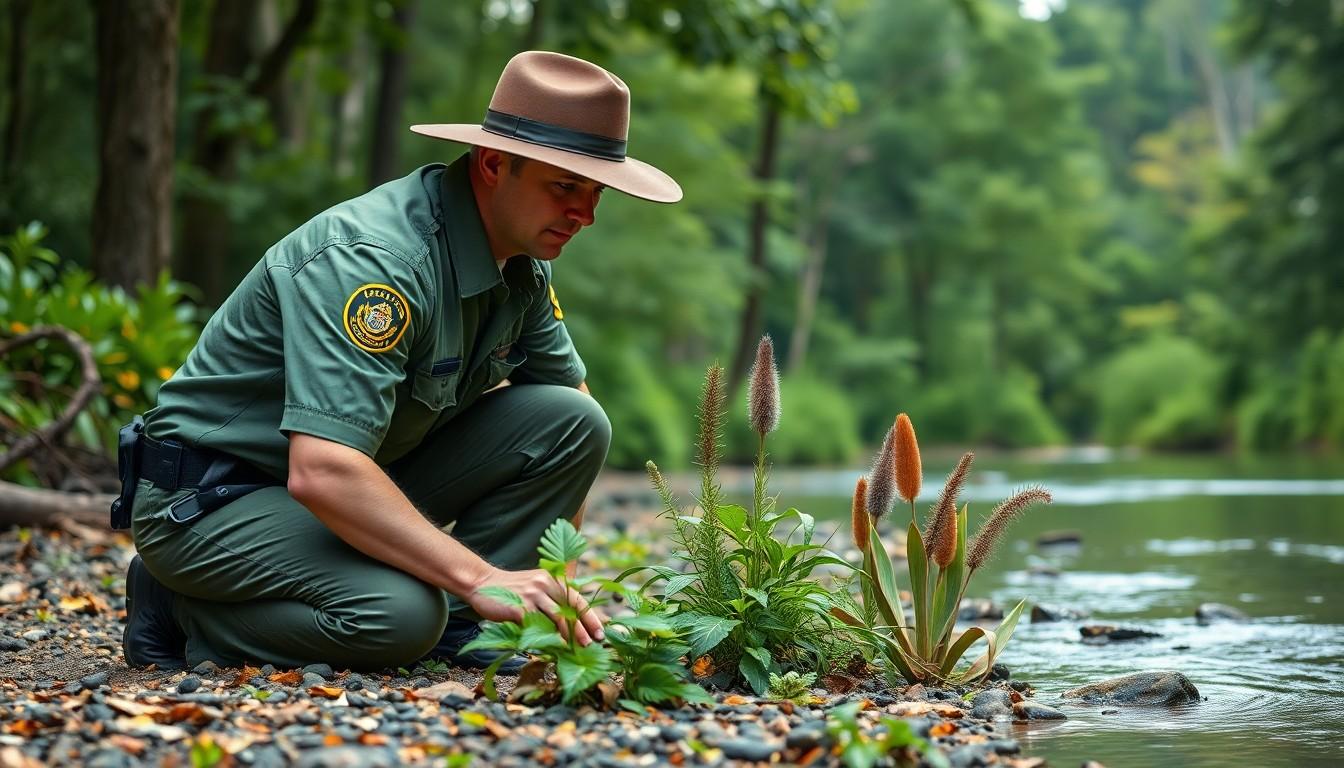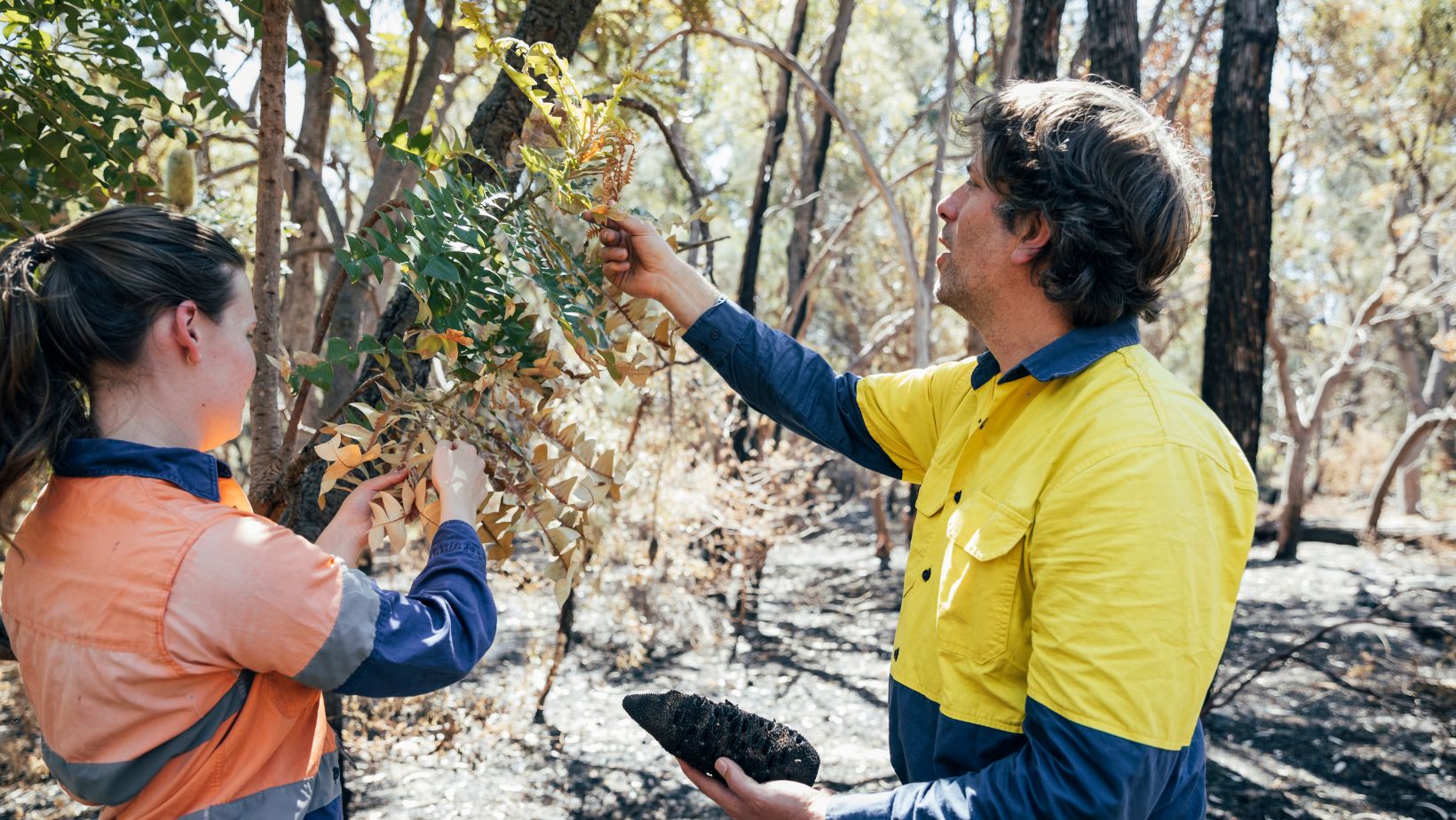In a world where plastic bags seem to multiply like rabbits and trees are still debating whether to go on strike, nature conservation officers are the unsung heroes battling for Mother Earth. These dedicated individuals wear many hats—scientist, educator, and sometimes even a tree-hugger. They’re on a mission to protect our planet’s precious resources and ensure that future generations can enjoy the beauty of nature without having to swipe right on a virtual forest.
But don’t let the serious title fool you; being a nature conservation officer can be a wild ride. From rescuing endangered species to organizing community clean-ups that might just involve some friendly competition, they know how to mix work with a bit of fun. So, if you’ve ever wondered who’s out there saving the world one tree at a time, look no further than these passionate protectors of the planet.
Nature Conservation Officer
Nature conservation officers play a crucial role in safeguarding ecosystems and wildlife. They conduct extensive scientific research to inform conservation strategies and policies. Engaging with local communities forms a significant part of their efforts, as they raise awareness about environmental issues. Educational programs often involve workshops and field trips aimed at fostering a deep appreciation for nature.
Conservation officers also monitor endangered species to implement effective recovery plans. Tracking animal populations and habitat health helps them assess the impacts of environmental changes. Data collection and analysis contribute to informed decision-making regarding resource management.
Organizing community events, such as clean-up initiatives, showcases their leadership in environmental stewardship. They collaborate with volunteers to restore local habitats while promoting sustainable practices. Networking with other organizations amplifies their impact and extends outreach efforts.
Encouraging residents to participate in conservation activities strengthens community ties. This active involvement fosters a sense of responsibility for local environments. Through their dedication, nature conservation officers ensure that natural resources are preserved for future generations.
Roles and Responsibilities
Nature conservation officers play essential roles that include habitat protection, wildlife management, and policy development. By engaging in these activities, they contribute significantly to environmental sustainability.
Habitat Protection
Habitat protection involves maintaining and restoring ecosystems. Nature conservation officers identify critical habitats that require preservation efforts. They work collaboratively with environmental organizations and stakeholders to create conservation plans. Monitoring ecosystems ensures ongoing health and resilience. Restoration projects often focus on reforestation and wetland preservation. Community involvement enhances these initiatives, fostering a sense of ownership over local environments.
Wildlife Management
Wildlife management encompasses the monitoring and protection of animal populations. Nature conservation officers assess species health and implement recovery strategies for endangered animals. Collecting data on population dynamics aids in understanding their ecological roles. Engaging in humane practices, such as relocating animals from urban areas, promotes coexistence. By conducting educational outreach, they inform the public about wildlife conservation efforts. This creates a deeper understanding of biodiversity and its significance.
Policy Development
Policy development requires knowledge of environmental laws and regulations. Nature conservation officers collaborate with government agencies to draft policies that promote ecological sustainability. They utilize scientific research as a foundation for informed decision-making. Public consultations facilitate community input and support for conservation initiatives. Advocating for stronger regulations helps protect natural resources from industrial impacts. Continuous evaluation of policies ensures they remain effective and relevant to current environmental challenges.
Skills Required for a Nature Conservation Officer
Nature conservation officers require a diverse skill set to effectively perform their duties. Key skills include strong communication and analytical abilities.
Communication Skills
Effective communication stands as a cornerstone for nature conservation officers. They convey complex environmental information clearly to various audiences, including community members and policymakers. Officers also engage in educational outreach, leading workshops that foster understanding of conservation issues. Additionally, teamwork thrives among conservationists when communication is open and collaborative. Officers must tailor messages for different groups, making technical information accessible to all. Public speaking skills enhance their capability to advocate for environmental initiatives, galvanizing community support. Overall, excellent communication fosters awareness and drives action toward conservation efforts.
Analytical Skills
Analytical skills play an essential role in the effectiveness of nature conservation officers. They collect and analyze data to inform conservation strategies and evaluate the health of ecosystems. This analytical approach allows officers to track species populations and habitat conditions, leading to data-driven decisions. Officers use statistical analyses to assess the impacts of various conservation programs, ensuring resources are used effectively. Additionally, problem-solving skills are crucial when devising recovery plans for endangered species. By employing analytical thinking, nature conservation officers contribute significantly to developing sustainable solutions for environmental challenges.
Career Path and Opportunities
Becoming a nature conservation officer offers various pathways and possibilities. This career combines education, experience, and a passion for the environment.
Education and Qualifications
A bachelor’s degree in environmental science, biology, or a related field typically serves as the foundation. Advanced degrees, such as a master’s in conservation biology, enhance qualifications and knowledge. Certifications from professional organizations can add specialization, further preparing candidates for roles. Skills in data analysis, communication, and project management strengthen job prospects. Practical experience through internships or volunteer work in conservation projects often plays a crucial role in securing positions.
Job Outlook
Employment opportunities for nature conservation officers are projected to grow steadily over the next decade. According to the U.S. Bureau of Labor Statistics, job growth for conservation scientists and foresters is expected to be around 5% from 2021 to 2031. Increasing public awareness of environmental issues fuels demand for experts in conservation roles. More organizations prioritize ecological restoration, expanding opportunities in various sectors, including non-profits, government agencies, and private firms.
Challenges Faced in Nature Conservation
Nature conservation officers encounter multiple challenges in their efforts to protect the environment. One significant issue involves balancing the needs of wildlife with the demands of human development. Urban expansion often leads to habitat destruction, creating conflicts between conservation priorities and community growth.
Funding represents another obstacle. Many conservation projects rely on grants and donations, making financial stability uncertain. Competition for limited resources limits the scope of initiatives and conservation strategies, hindering long-term success.
Climate change poses a further challenge, influencing ecosystems and species distribution. Adapting to these changes requires innovative approaches and increased collaboration among stakeholders. For instance, new policies may need to address shifting wildlife populations and habitat changes in real-time.
Public awareness and engagement also play crucial roles in conservation efforts. Raising awareness about local environmental issues is essential for garnering community support. However, misinformation can undermine these initiatives, creating confusion and resistance to conservation efforts.
Additionally, bureaucratic hurdles complicate the implementation of conservation policies. Nature conservation officers must navigate complex regulations and collaborate with various governmental and non-governmental organizations. These interactions can slow down progress and create obstacles in timely decision-making.
Networking within the conservation community is vital for addressing these challenges. By fostering relationships with other professionals, officers gain access to new ideas and resources. This collaboration strengthens their ability to meet conservation goals effectively.
Overall, the journey toward effective nature conservation is filled with obstacles. Addressing these challenges requires dedication and a multifaceted approach that incorporates scientific knowledge, community involvement, and proactive policy development.
Preserving Natural Resources
Nature conservation officers are essential guardians of the environment. Their diverse skill set and dedication empower them to tackle pressing ecological challenges while engaging communities and fostering a love for nature. By combining scientific research with public outreach, they create effective conservation strategies that benefit both wildlife and local populations.
The future of nature conservation relies on their ability to adapt and innovate in the face of changing environmental conditions. As they continue to advocate for sustainable practices and educate the public, these officers play a pivotal role in shaping a healthier planet for generations to come. Their commitment to preserving natural resources ensures that the beauty of the world remains intact, inspiring others to join in the vital mission of conservation.

